
Intro
With the recent release of the stunning blues rock album Black Rock, Joe Bonamassa's fame is poised to go from big-time cult status to the land of mainstream superstars.
At 32, he's paid enough dues for three men, playing his first gig aged 11 and then hitting the road with the band Bloodline while still a teen. As a solo artist, his guitar playing, along with his singing and songwriting, has matured into a full-bodied style that can stir the senses in ways that are as profound emotionally as they are technically impressive.
"That's the thing about the blues," Bonamassa says. "It's one thing to hit a note on a guitar. To make it matter is something else altogether."
On the following pages, Bonamassa discusses his 11 biggest blues influences and cites their most important recordings. "These are the guys who schooled me," he says. "Whatever I am now and wherever I'm going, it's all because of what came first. These are the players who taught me everything I know."
Click here to read on...
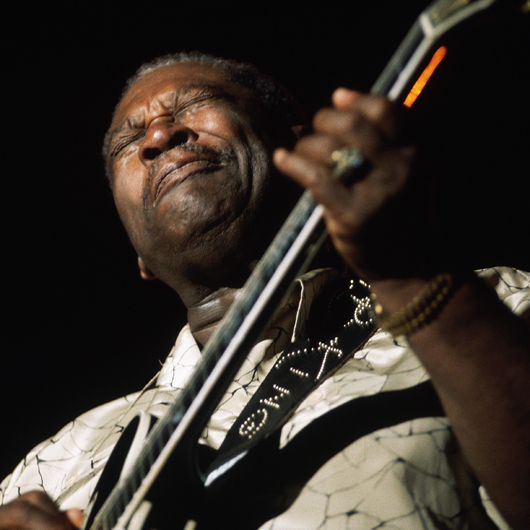
BB King
“Two reasons why: First, he defines a genre of music. When you think blues, you think BB King. Even a young kid can look at a picture of BB King and say, 'the blues.' The man is more than a musician. He's a monument.
“Second reason, of course, is his playing. His phrasing is second to none. I know it’s a cliché, but he can literally hit one note and you know it’s him. He has a sound, a touch and a vibrato that is uniquely his own. He talks and sings through his guitar - although, as we all know, his actual singing is extraordinary too.
“If I had to pick the essential BB King album, it would be Blues Is King [1967]. An incredible record in every way. What's interesting is, at the time he made it, he was coming off a lawsuit in which he lost a lot of money, so he couldn’t afford a big band and fancy production. So he just went ahead and cut the disc live with a four-piece group - and he’s on fire! His covers of Buzz Me and Night Life are the definitive versions, in my opinion.
"BB King. That's all you gotta say."
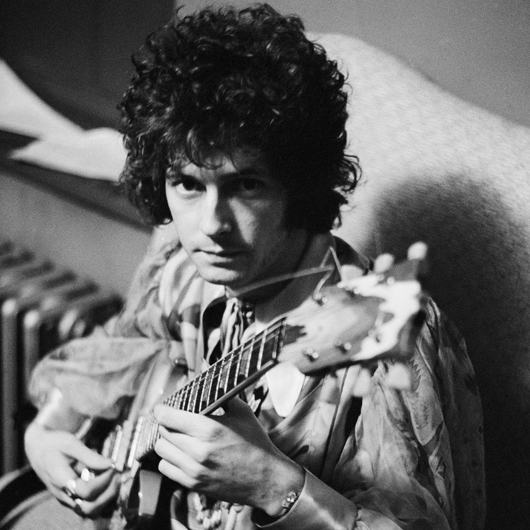
Eric Clapton
“The man influenced millions of guitarists, and he impacted my playing in so many indelible ways. The stuff he did with the Bluesbreakers and Cream and Blind Faith, it’s like you can't believe that all came from one guy.
“Although he’s done hard rock and pop and other things, Clapton is fundamentally a blues player. That’s his true passion. You can really hear this in his work with John Mayall And The Bluesbreakers. It's almost shocking how fully developed a guitarist he already was at the time. His phrasing, his choices of notes... astounding.
“The 'Beano' record [Blues Breakers With Eric Clapton, 1966] is a classic. I sat with it when I was a kid, SG in hand, and I studied it like a textbook. Seriously. I learned it note-for-note, backwards and forwards. It's that great. Jamming along to Eric was my homework. And unlike my friends, I really loved doing my homework!"
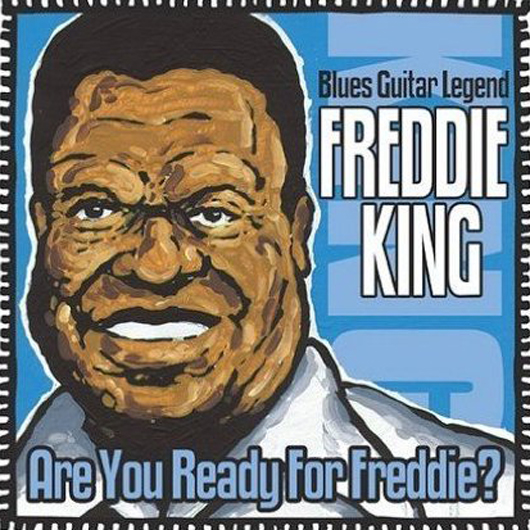
Freddie King
“He was a tornado. They even called him The Texas Tornado, and with good reason: the guy came out with a Gibson ES-345, plugged straight into his amp, played with a thumb pick and just blew the house down!
“That’s the big difference between him and a lot of other blues guys: he rocked. He played with massively bad intentions. [laughs] His singing, his guitar playing… the man could knock down trees and anything else in his way. A total badass, you know?
“Unquestionably, his greatest album is Are You Ready For Freddie? [released posthumously in 2004]. It’s a live record that really captures him in his element. He’s got a Fender Quad Reverb fully cranked, and he's just slaying people. Listen to this album and you’ll get schooled in how hard the blues can hit you in the chest. Unreal.”
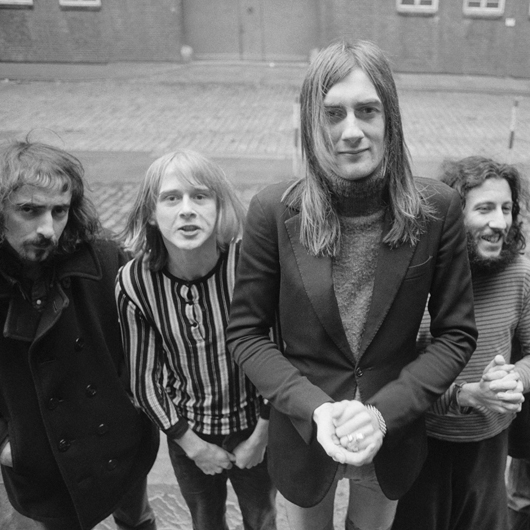
Peter Green
“Again, we can go back to John Mayall And The Bluesbreakers. A Hard Road [1967] is a beautiful album that really shows off the magic of Peter Green. And, of course, the stuff he did with the early Fleetwood Mac is brilliant. His sound, that out-of-phase Les Paul tone on Black Magic Woman… I get chills. And unlike a lot of blues guitarists, Green was a great songwriter too.
“His phrasing was impeccable. He rode the line between the American and British styles so well and created something that was all his own. He influenced me greatly.
“It’s a toss-up between A Hard Road and the Fleetwood Mac records that have Oh Well [Then Play On, released in the US in 1969] and Albatross [English Rose, released in the US in 1969] on them. But I will say that the version of the song So Many Roads [from the expanded edition of A Hard Road, 2006] is mind-blowing, so I might have to go with the Bluesbreakers when it comes to Peter Green.”
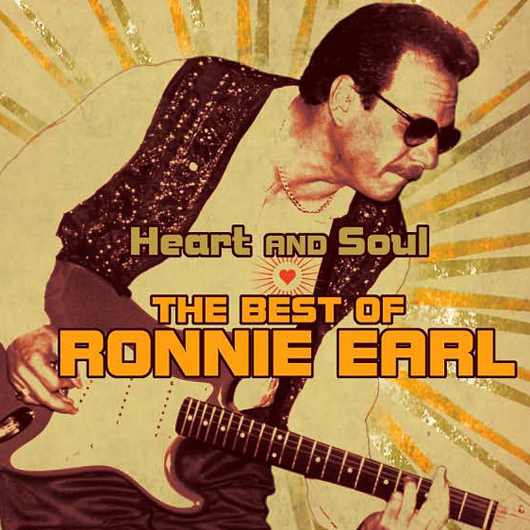
Ronnie Earl
“The only guy who plays a Fender on my list. He plays so clean and his tone is so good. For a guy who just plugs into a Super Reverb, he defines that East Coast/Boston blues vibe, which was always very appealing to me.
“To my ears, he’s from the Elmore James/T-Bone Walker school of blues. As an influence, he‘s right up there, particularly in his early days.
“Best record of his is probably Soul Searchin’ [1988] with a guy named Darrell Nulisch singing. It really boils down to songs. A lot of blues guitarists get wrapped up in the soloing; everything they do is one big-ass solo. But I think a great blues album has to have great songs, and Soul Searchin’ is full of them.”
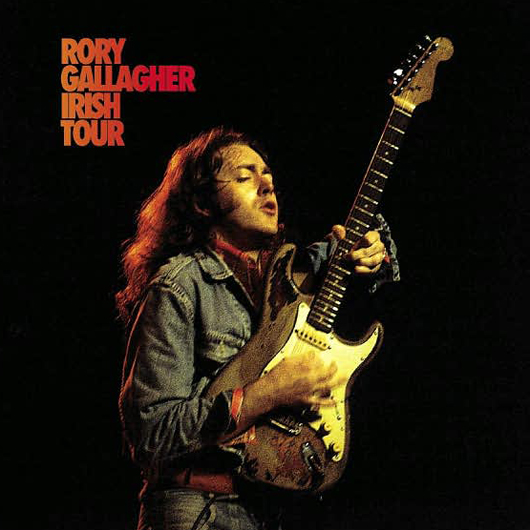
Rory Gallagher
“Yeah, I know he plays a Stratocaster, so I’ve already contradicted myself about Fender cats. Some people would call Rory more of a rock player because of songs like Tattoo’d Lady. But if you listen to As The Crow Flies, his blues is coming from a place of real authority.
“Also, check out Who’s That Coming - his slide playing and his intonation are spot-on perfection. He's fiery and dangerous; he doesn't play safe at all. It’s like listening to Hubert Sumlin, only instead of a black bluesman in a suit you've got this Irish dude with a flannel shirt.
“He has a live album called Irish Tour [1974] that sums it all up. Everything that makes Rory an important blues guitarist, you’ll find it on that record.”
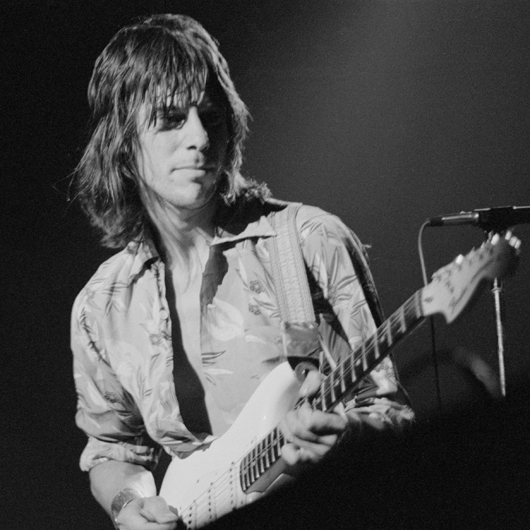
Jeff Beck
“OK, forget what I said about Fender players. Obviously Jeff Beck plays Fenders, but he’s played Les Pauls too. He could probably play a pogo stick and make it sound good.
“The songs Let Me Love You, Baby and Blues Deluxe - he’s rippin’, man! Insane stuff, truly remarkable. His version of I Ain’t Superstitious is the ultimate; it’s right on par with what Howlin’ Wolf did.
I love the albums Truth [1968] and Beck-ola [1969], but if I had to pick one special record it would be Blow By Blow [1975] because I'm so into what he does with a Les Paul. Everything on that record is stunning. His tactile approach to playing… nobody can pull a note out of a guitar like Jeff Beck.”
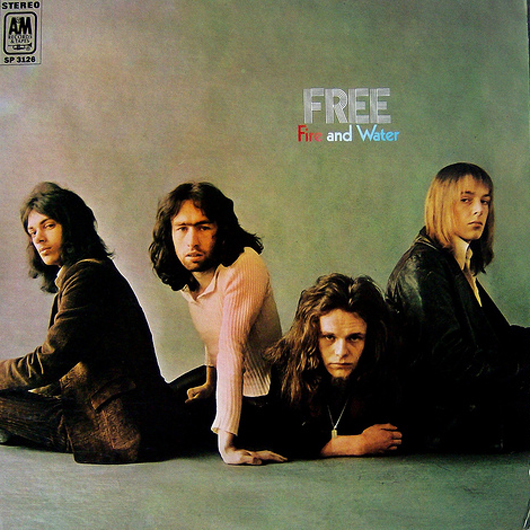
Paul Kossoff
“Nobody talks about him, and they should. He was a giant. A very forgotten, underrated player - one of the best guitarists of the early ’70s.
“I could probably name the whole Free catalogue and not come across a bad Paul Kossoff performance. I’m A Mover, Walk In My Shadow, Heavy Load, Fire And Water, Mr Big - he's great every time. His vibrato was the best ever. He was like Freddie King and BB King: one note and it was all over. The guy didn’t need effects. Everything Paul Kossoff did came from his fingers and went right into the amp. He was his own effects unit.
“The two Free albums I love the most are Tons Of Sobs [1968] and Live At The BBC [import, released in 2006]. Both are superb. If you want to hear Paul Kossoff in his prime, those are the ones.”
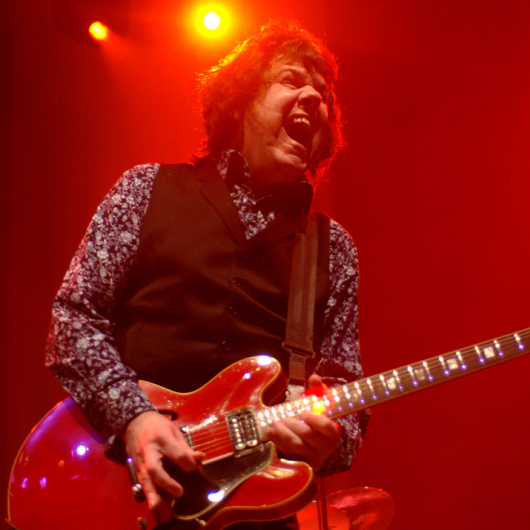
Gary Moore
“If it wasn’t for guys like Gary Moore, I wouldn’t exist. He not only proved that the blues could rock, but it could draw a crowd, as well. All of which made a huge impression on me.
“His playing is almost scary. He has the fastest middle finger going - it’s just mental. What’s cool is, he showed me that you can shred a bit in the blues without it being overdone. His approach - that you have to begin and end your phrases with the blues and throw in some shredding in the middle - was very revolutionary.
“Still Got The Blues [1990] is the must-have album. There’s songs like Midnight Blues, As The Years Go Passing By, Too Tired, Walking By Myself, and he has version of Oh Pretty Woman that's very cool. Buy this record and you won’t be sorry.”
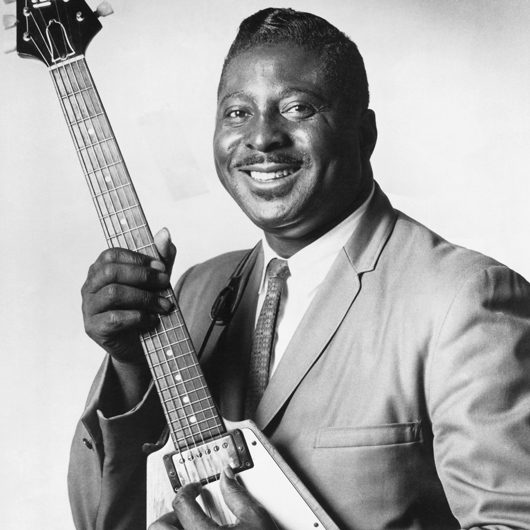
Albert King
“Even though by his own admission he wanted to be known more as a soul and R&B singer, his blues guitar playing was unreal.
“I heard a recording of him playing a live version of a song called As The Years Go Passing By that is so well constructed and creative, you just hang on every note. And I'm talkin' about an eight-minute-solo! Plus, if you listen to his tone on Crosscut Saw, it's positively titanic. It’s on par with the tones on some of the classic Bluesbreakers records.
“His album Born Under A Bad Sign [1967] is one everybody should own. First off, you’ve got the title cut, which just blows me away every time. Then you've got Crosscut Saw, which I’ve already mentioned. You know, picking one cut is tough. The whole thing is marvelous!”
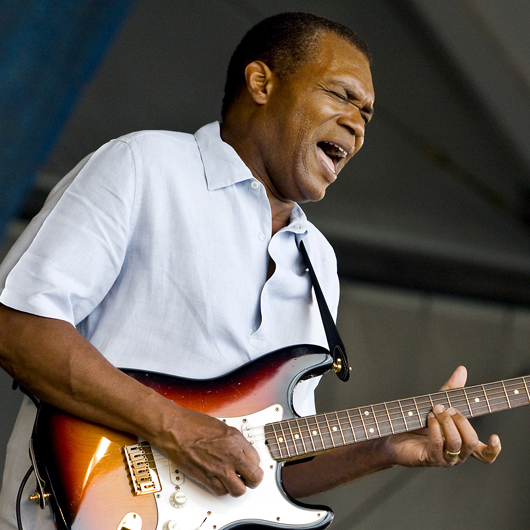
Robert Cray
“Back in the ‘80s, I'd turn on MTV and see all the spandex bands like Cinderella and what have you. But then there was this guy named Robert Cray doing this song called Smokin‘ Gun, it was like he was from another planet. Who is this cool dude among all the hair metal?
“His career is made up of many, many beautiful songs. Beyond that, though, he's got a technique that is almost freakish. For example, take the song Time Makes Two - a normal human being just can’t play it. I swear, he has a six-fret stretch. The guy is ridiculous! Nobody talks about him either, which is a shame, because to me he’s the heir apparent to people like BB King and Buddy Guy.
“Strong Persuader is the big disc of his. A top-notch album all the way. I could do without some of the ’80s keyboards on it. Maybe one day somebody will do an alternate mix of it and push the guitar all the way up front and lose the keyboards. He deserves that much.”
Liked this? Now check out Joe Bonamassa talks new album Black Rock: track-by-track
Connect with MusicRadar: via Twitter, Facebook and YouTube
Get MusicRadar straight to your inbox: Sign up for the free weekly newsletter

Joe is a freelance journalist who has, over the past few decades, interviewed hundreds of guitarists for Guitar World, Guitar Player, MusicRadar and Classic Rock. He is also a former editor of Guitar World, contributing writer for Guitar Aficionado and VP of A&R for Island Records. He’s an enthusiastic guitarist, but he’s nowhere near the likes of the people he interviews. Surprisingly, his skills are more suited to the drums. If you need a drummer for your Beatles tribute band, look him up.
“Every note counts and fits perfectly”: Kirk Hammett names his best Metallica solo – and no, it’s not One or Master Of Puppets
“I can write anything... Just tell me what you want. You want death metal in C? Okay, here it is. A little country and western? Reggae, blues, whatever”: Yngwie Malmsteen on classical epiphanies, modern art and why he embraces the cliff edge
“Every note counts and fits perfectly”: Kirk Hammett names his best Metallica solo – and no, it’s not One or Master Of Puppets
“I can write anything... Just tell me what you want. You want death metal in C? Okay, here it is. A little country and western? Reggae, blues, whatever”: Yngwie Malmsteen on classical epiphanies, modern art and why he embraces the cliff edge









